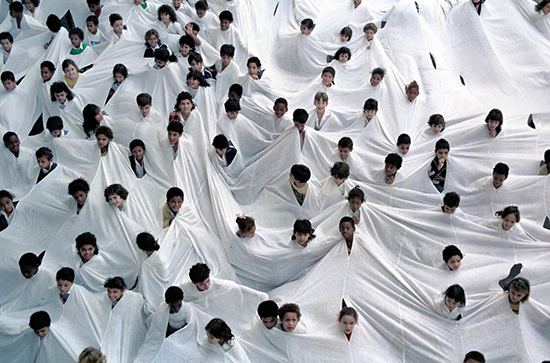Feminism in the canon of philosophy:
A research lab Instructor: Kerstin FuchsProgram: Critical Philosophy, Art & Curatorial PracticeCredit(s): 1Date: June 2nd, 9th, 16th, 23rdTime: 09:00-11:30 ET

DESCRIPTION: In this Seminar, we will talk about feminist philosophy and its development into a parallel entity, into a “Philosophy’s ‘Other’” as Judith Butler calls it, concerning the traditionally understood philosophy, not included in the canon of philosophy as obligatory readings, while many feminist philosophers teach in other departments than philosophy itself.
Starting with the Ancient Greek cities as the birthplace of Western philosophy, we will see how the structural setup of the Greek society set the tone of what we read as the philosophical canon nowadays — the cradle of Democracy in its lack of representation. Feminist philosophers engage with the traditional canon of philosophy and a wide range of contemporary philosophical writings.
Still to this day, this is marked by a lack of mutual recognition that results in exclusion and foreignness towards feminist philosophy and women philosophers in general.
Women philosophers who are asking questions outside of the framework of traditionally thought philosophy when confronted with statements like “I cannot understand this or I do not see the argument here, all very interesting . . . but certainly ‘not’ philosophy.”, get pushed to the margins, with the only options to either constantly fight for their position or leave the field of philosophy for good, and therefore erased as equally valuable voices and insights.
As a consequence of these neglects, Judith Butler asks, “Is there any hope left for philosophy unless it actively engages precisely such an impurity?”
In the Seminar we will explore these impacts on the field of philosophy, and we will ask why it is important to read feminist philosophy as a collective effort in the canon of philosophy, rather than reading the endeavor of individual women philosophers as standing for an inclusion of women in general.
To what extent must a Critical Philosophy nowadays include feminist philosophy, to get sensitized to the topics, while widening its horizon, creating potentially new openings in order to gain a more representative epistemology.
Picking up on practices in feminist circles through community and collaboration, the aim of this Session is to invite discussion to think together through the challenges and perspectives of such an inclusive canon.
This Seminar functions as an opening introduction to a wide range of inquiries.
All Sessions will be accompanied by readings.
Session 1: How did we get here in the first place?
This Session will start to define what is feminist philosophy. What gets debated? What is the focus of its research? What does a contemporary feminist philosophy stand for? Why and How do we become feminist philosophers? Why is feminist philosophy not just for women?
Session 2: How did we get here in the first place? Part 2, the heritage.
Looking back at women philosophers throughout the history of philosophy, the question of archives, what and why is something included and what and why gets excluded.
Are we excluded from what? We will look closer at what traditionally understood philosophy entails by reading through its history with the specific example of the Ancient Greek cities as the birthplace of Western Philosophy.
Session 3: Why is feminist philosophy kept out of the rooms of a more institutionalized philosophy? Why did feminist philosophy develop into its own entity, particularly over the course of the 20th century?
Session 4: Why is it important to include feminist philosophy? This question will be read along with the specific example of Hedwig Dohm’s critique of Nietzsche.
What are the struggles and what could be the gains of including feminist philosophy in the canonical reading of philosophy.
IMAGE: Lygia Pape, Divisor, 1968.
To see The New Centre Refund Policy CLICK HERE.
To see The New Centre Refund Policy CLICK HERE.